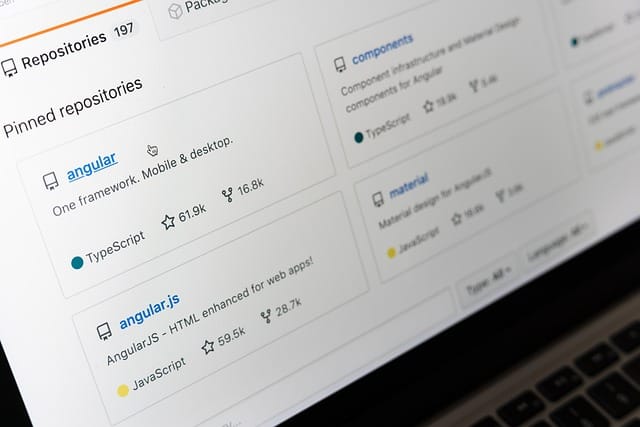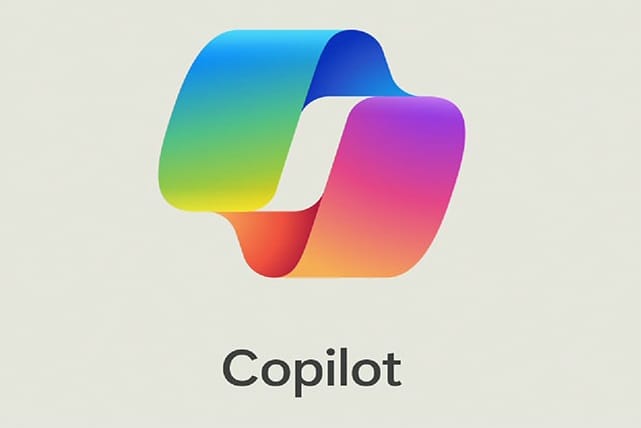An AI coding assistant is transforming the way developers approach software development. These intelligent tools leverage machine learning and artificial intelligence to assist programmers in writing code more efficiently and accurately. With the rapid advancement of technology, programmers are increasingly turning to the best AI coding assistants to streamline their workflow, reduce errors, and enhance productivity. In this blog post, we’ll explore what an AI coding assistant is, its benefits, and how it can significantly improve the coding process.
Understanding the capabilities of an AI code helper can be crucial for developers at all levels, from beginners to seasoned professionals. These coding AI assistants offer features such as code completion, syntax checking, debugging support, and even suggestions for best practices. This means that developers can spend less time on mundane tasks and focus on creating innovative solutions.
Moreover, the importance of adopting an AI programming assistant in today’s fast-paced tech environment cannot be overstated. As the demand for software development continues to grow, the efficiency offered by AI coding helpers can help teams meet tight deadlines while maintaining high standards of code quality. By the end of this post, you can expect to have a comprehensive understanding of the different types of AI coding assistants available, including free AI coding assistants and those offered by platforms like GitHub and Alibaba Cloud. You’ll also discover how to choose the best option that aligns with your specific needs and coding style.
What is an AI Coding Assistant?
An AI coding assistant is a software tool designed to aid developers in the coding process through intelligent features powered by artificial intelligence. These tools analyze code patterns, context, and even user preferences to provide real-time suggestions, error detection, and code optimization strategies. The core functionality often includes:
- Code Autocompletion: As developers type, the AI assistant can predict and complete code snippets based on existing patterns or libraries.
- Error Detection and Debugging: It identifies errors in real-time, suggesting corrections and best practices to improve code quality.
- Learning and Adapting: Over time, the assistant learns from user behavior, adapting its suggestions to better suit individual coding styles.
Tools like Visual Studio Code AI Assistant and GitHub Copilot exemplify the capabilities of modern coding assistants, providing features that help speed up development cycles while enhancing overall productivity.
Benefits of Using an AI Coding Assistant
Increased Productivity: With an AI programming helper, developers can accomplish tasks faster due to the reduced need for manual coding and debugging. The assistant handles repetitive tasks, allowing developers to focus on more complex aspects of their projects.
Improved Code Quality: An AI code helper ensures that best practices are followed, minimizing bugs and errors. This leads to cleaner, more maintainable code that adheres to industry standards.
Learning and Skill Development: For less experienced developers, coding AI assistants can act as educational tools. They offer insights into better coding practices and help users learn new programming languages or frameworks.
Cost Efficiency: Tools like the free AI coding assistant options available can significantly reduce development costs by streamlining workflows and minimizing errors that might lead to costly fixes.
Accessibility and Ease of Use: Many AI coding assistants are designed with user-friendliness in mind, allowing developers to integrate them seamlessly into their workflow. This makes them accessible to individuals who may not have extensive programming experience.
Types of AI Coding Assistants
1. GitHub AI Assistant
GitHub offers its own AI assistant known as GitHub Copilot. It uses OpenAI’s Codex model, which has been trained on a vast dataset of public code. GitHub Copilot can generate entire functions or even blocks of code based on comments and context. This tool is particularly useful for those looking to enhance their productivity and leverage the vast amount of code available in public repositories.
2. Tabnine AI Assistant
Tabnine is another powerful code assistant AI that integrates with various IDEs. It uses machine learning algorithms to provide relevant code completions and suggestions, improving the overall coding experience for developers. Tabnine supports many languages and is customizable based on the specific coding style of the user. For more information, you can visit Tabnine’s official page.
3. Kite AI Coding Assistant
Kite is a popular coding AI assistant that provides line-of-code completions and documentation for a wide range of programming languages. It works seamlessly with editors like Visual Studio Code, making it a top choice for many developers. Kite uses a proprietary algorithm to understand context and provide relevant suggestions. Check out Kite’s features for more details.
4. Alibaba Cloud AI Coding Assistant
Alibaba Cloud offers its own AI-powered coding assistant that can be beneficial for enterprise-level applications. It is designed to streamline development processes and enhance team collaboration. The features include intelligent code suggestion, debugging support, and enhanced collaboration tools for remote teams. More information can be found on Alibaba Cloud’s AI Coding Assistant page.
5. OpenAI Code Assistant
OpenAI also provides a coding assistant that leverages their advanced language models to assist with programming tasks. The assistant can help in generating code snippets, understanding complex coding queries, and providing suggestions based on the user’s input. It’s designed to be adaptable to various coding environments and languages. You can explore more about OpenAI’s offerings here.
How to Choose the Best AI Coding Assistant
When selecting the best AI code assistant for your needs, consider the following factors:
Integration: Ensure that the assistant integrates well with your current development environment (IDE) or platforms you frequently use.
Language Support: Different AI assistants support various programming languages. Choose one that caters to your primary coding languages.
Cost: While many options are free, some advanced features may come at a cost. Evaluate whether a premium version is necessary for your workflow.
Community and Support: A strong community and support system can greatly enhance your experience. Look for tools with active user forums or responsive customer support.
User Reviews and Ratings: Research user feedback to gauge the effectiveness and reliability of different coding assistants. Websites like G2 and Capterra provide insights and reviews from real users.
Features to Look for in an AI Coding Assistant
When choosing an AI coding helper, consider the following features to ensure you select a tool that meets your requirements:
1. Real-Time Collaboration
For teams working remotely, having an AI coding assistant that supports real-time collaboration can be a game changer. Features like shared code snippets and real-time feedback can enhance teamwork and streamline project workflows.
2. Multi-Language Support
A good AI coding assistant should support multiple programming languages to cater to developers working in various domains. Check if the assistant you choose covers the languages you use most frequently, such as Python, JavaScript, or Java.
3. Customizability
The ability to customize suggestions and features based on personal or team coding styles is vital. Look for assistants that allow you to fine-tune their settings to better align with your preferences.
4. Documentation and Tutorials
Access to extensive documentation and tutorials can significantly improve your learning curve when using a new coding assistant. Ensure that the tool you select provides ample resources to help you get started.
5. User-Friendly Interface
A clean and intuitive interface can greatly enhance your coding experience. Make sure the AI assistant you choose is easy to navigate and doesn’t add unnecessary complexity to your development process.
Challenges of Using AI Coding Assistants
While there are many benefits to using an AI coding assistant, some challenges should be acknowledged:
Dependence on AI: Relying too heavily on an AI coding assistant can lead to a decrease in problem-solving skills and coding knowledge over time. Developers should strive to maintain their coding skills alongside using these tools.
Quality of Suggestions: Not all AI coding assistants provide high-quality or relevant suggestions. It’s essential to critically evaluate the code provided and make adjustments as necessary.
Learning Curve: Adapting to a new AI coding assistant can come with a learning curve. Developers may need to invest time in understanding the tool’s capabilities and how to use it effectively.
Data Privacy Concerns: Using AI coding assistants often requires sharing code snippets or projects with external servers. Developers should be cautious about data privacy and security, especially when working on sensitive projects.
Future of AI Coding Assistants
As artificial intelligence continues to evolve, so will the capabilities of AI coding assistants. Future developments may include:
Advanced Natural Language Processing: Enhanced understanding of human language will allow AI coding assistants to interpret complex coding queries and provide more accurate suggestions.
Better Contextual Awareness: AI assistants may become more adept at understanding the context in which code is being written, leading to more relevant suggestions.
Increased Integration: AI coding assistants will likely see improved integration with existing development tools, streamlining workflows and enhancing user experiences.
Collaborative Features: Future AI coding assistants may focus more on collaboration, enabling teams to work together seamlessly in real-time.
Learning Path Customization: AI coding assistants could evolve to provide personalized learning paths for developers, helping them to improve specific skills based on their coding history and preferences.
Conclusion
In summary, an AI coding assistant is an invaluable resource for modern developers seeking to enhance their productivity and code quality. By leveraging tools like GitHub Copilot, Tabnine, Kite, and others, programmers can significantly improve their coding efficiency and reduce the likelihood of errors. The ability to adapt and learn from user interactions makes these tools essential for both beginners and seasoned professionals alike.
As the technology landscape continues to evolve, integrating an AI code helper into your workflow can provide a competitive edge in a fast-paced environment. By choosing the right coding AI assistant for your needs, you can streamline your development process, foster learning, and ultimately deliver better software solutions.
Take the next step in your coding journey by exploring the various AI programming assistants available today. Embrace this innovative technology and experience the difference it can make in your coding endeavors.






